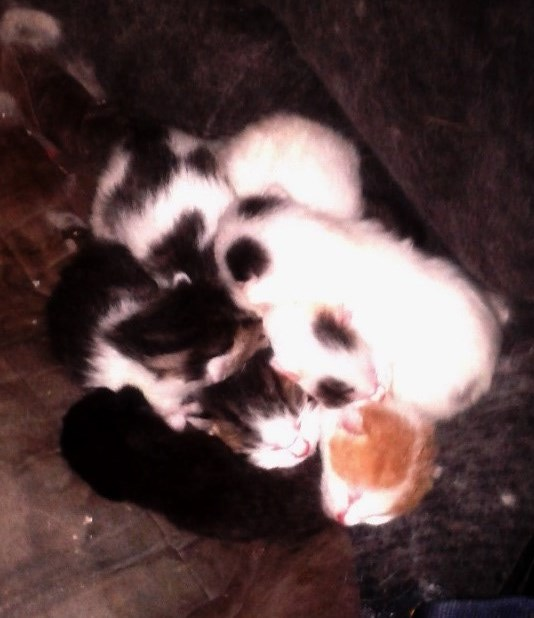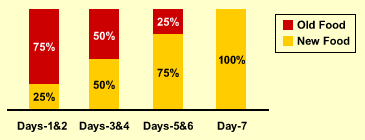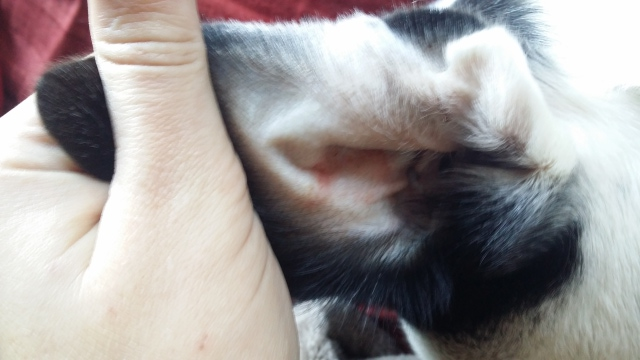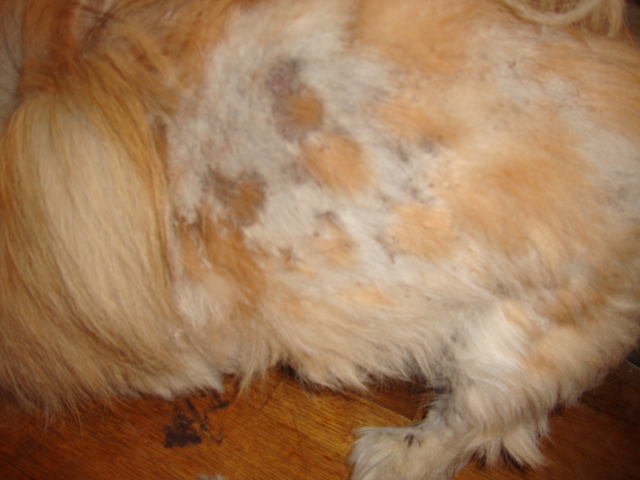QuestionQUESTION: Hello,
I have a male ragdoll who is now about six months old and almost 9 lbs. I
have been feeding him dry Wellness Kitten Health. I started to read that wet
food is better because it helps keep them hydrated and is closer to how they
eat in nature, so I began to transition him to the wet canned Wellness Kitty
Formula. Before, I had given him a can only as an occasional treat every few
weeks, but for the last two weeks I've been replacing his meals with it. I
thought I was doing it gradually enough, but he's had diarrhea for the last
couple of days. Is this normal? Should I continue to feed him the wet food?
(Right now I'm feeding him a 3 oz can twice a day spaced 12 hours apart and
leaving dry food out for him to nibble on -- he hasn't been eating much of
the dry food lately). For the moment, I'm continuing the diet in hopes that
the diarrhea will naturally subside. I don't know if changing back will just
make it worse.
Thanks,
Lorraine
ANSWER: While the ancestors of our modern cats were desert animals and cats generally do better if they get enough water, canned food isn't always the answer. It is for cats that have had Feline Lower Urinary Tract disease, but for young healthy cats it's not always a necessity.
I know Ragdolls are a bit larger then a lot of breeds but 9 lbs at 6 months seems a bit heavy to me. His bones are not even solid in places yet so that seems like a lot of weight for his age. Most adult cats are 8-11 lbs.
I would be concerned about the fat content of this food. As you found out the hard way, changing diets, even from dry to wet, usually does cause digestive upsets.
One way to prevent this is by making the change very slowly, but when it comes to wet food it is almost always going to cause diarrhea.
Personally, and with over 30 yrs of watching cats and dogs grow up and live longer, healthier lives on it, I only recommend and feed Science Diet foods from Hills Pet. My own pets live to be 19, 15, 16 on it, some of them years past their 'average' age.
Wellness foods are very high in calories. The kitten formula has almost 1700 calories per cup! Not just fat, but everything in the food amounts to that many calories per cup. Fat is used for energy, but in a common house cat, not much of that will be expended and will contribute instead to obesity and large kittens!
So my question to you is this: are you married to this brand or would you be willing to try and give your beautiful cat a better quality of food that is 100 % money back guaranteed, has a very nutrient dense formula that never changes, and has optimal nutrition for his kittenhood and the rest of his life?
If you are willing to try it, take the three bag challenge and see what this food can do for your cat. If you do switch him, make sure that you do it slowly over 7 days. You can use either wet or dry, but my other concern with an all wet diet is his dental health as well.
Cats that eat a lot of wet food have periodontal disease much quicker than cats that eat dry food which works the gums and keeps them healthy.
I hope I didn't complicate things for you, but I wanted you to be aware of the choices you have.
I looked up Wellness foods and unless you really know how to read a bag label and what a guaranteed analysis really is, you won't know what's really in the bag.
If you want to know more please just let me know.
You can mix some rice cereal into his food for a few days as well and that will help with the diarrhea. Just get a box of the baby food rice only cereal. Most cats really like it. Canned pumpkin works well too, but some cats won't touch it. Baby cereal is much cheaper.
I hope this helps Lorraine. Here is the three bag challenge from Science Diet:
http://www.feedingisbelieving.com/believe/3-Bag-Challenge-Form.html
They will send you coupons as well!!
Please let me know how he does.
---------- FOLLOW-UP ----------
QUESTION: Well, ragdolls are the second largest breed. I took him to the vet recently, and
they said he was a normal weight. I've compared to a lot of ragdolls and he is
actually at the same level. They are supposed to gain a pound per month until
they are twelve months, so a lot of one-year old neutered male ragdolls are
about 12 or 13 pounds, and many even get up to 20 pounds when they are
full-grown at three years of age. He is a very long cat, so he doesn't look
overweight at all. He is overall bigger (not fatter) than almost all the full-
sized cats that I've seen.
Additionally, he does not eat very much. I would usually leave the
recommended amount of dry kibble for the day and a lot of times he would
not eat it all. So I know I'm not over-feeding him. Like you said, Wellness has
a lot of calories so he doesn't have to eat as much to be full. I don't see this
as a bad thing. It is high in protein so he gets quality, not quantity. I've done
a lot of research between Wellness and Science, and I will still stick to
Wellness.
About the diarrhea, I think I'll go back to dry for now and get him that rice
cereal, thanks. I'll go back to only occasionally giving him a little wet food as
a treat. I think there is merit in feeding canned over dry, but his stomach may
not be able to handle it unless I introduce it very slowly. I've read a lot of
stuff discrediting the bit about periodontal disease. In the wild, cats don't
have dry kibble to help them with their teeth and they eat raw food. So I'll just
brush his teeth and get him a bone to chew on for that.
AnswerSorry this took so long to answer, but I wasn't really sure it was a question so much as a follow up statement.
I just want to say this Lorraine. You state that the Wellness food is high in protein so you will stick to it. I don't think you are aware of how high in protein this food is. Protein is not what kittens need for energy, fat is. Protein is for growth and muscle building. But by the age of 6 months to a year, most cats have stopped growing. A higher protein diet can be very dangerous over time for people as well as cats.
There is no solid proof but over time it has been shown that higher protein diets can be detrimental to kidney health as they are the organ that filters out the protein by-products when the protein is broken down.
As far as your statement about kibble and periodontal disease, whatever you may have read online doesn't mean it's true. I have done over 4,000 dentals on cats and dogs and I can tell you by life-experience that cats that eat canned food have a higher rate of periodontal disease. Yes, cats in the wild eat raw food covered with hair, and bones and cartilage. So if you want to feed your cat a whole rabbit then they too, will have cleaner teeth. They will also probably have some pretty serious intestinal problems as well. Cats are not cougars or lions. They are domesticated animals and have different digestive systems than their wild cousins do.
Just wanted to let you know that. Be careful about his protein levels and if you can find the correct analysis of this food you will see how high it is. Feeding a bone for dental health won't work in cats either. It will only cause splinters and perforated intestinal walls.
Thanks for writing!

 1front/1hind leg poralisis ina dog
QuestionQUESTION: Hello,
I have a 9 year old Hairless C
1front/1hind leg poralisis ina dog
QuestionQUESTION: Hello,
I have a 9 year old Hairless C
 Young male, female and newborn kits
QuestionQUESTION: Greetings,
I have a stray male and a
Young male, female and newborn kits
QuestionQUESTION: Greetings,
I have a stray male and a
 Strange noises in the stomach
QuestionQUESTION: Hello. I have a twelve-and-a-half-yea
Strange noises in the stomach
QuestionQUESTION: Hello. I have a twelve-and-a-half-yea
 red bumps in dogs ear
Question
left ear
My puppy has red bumps in her
red bumps in dogs ear
Question
left ear
My puppy has red bumps in her
 pekingese skin problems
Question
1 i have 4 more pic i
i was wonerin wat my ad
pekingese skin problems
Question
1 i have 4 more pic i
i was wonerin wat my ad